Boeing’s Starliner capsule launches on mission full of firsts

Boeing's Starliner capsule finally launches
The Starliner capsule blasts off on its first test flight with astronauts. Here's the view provided by NASA as the mission launched from Florida.
CAPE CANAVERAL, Fla. - For only the third time since the Apollo missions, astronauts are trying out a brand new spacecraft. Boeing’s Starliner capsule finally lifted off Wednesday morning on its third test flight, but the first with humans aboard.
If all goes well, Butch Wilmore and Suni Williams will dock at the International Space Station midday Thursday. They plan to stay for over a week, testing out the new craft’s systems, workflows, and pitching in with work aboard the station.
After they undock, they’ll head home, reentering the atmosphere and parachuting to a soft landing in the New Mexico desert.

A United Launch Alliance (ULA) Atlas V rocket carrying Boeing's Starliner Crew Flight Test (CFT) for NASA's Commercial Crew Program lifts off from Space Launch Complex-41 on June 5, 2024 at 10:52 a.m. EDT. (United Launch Alliance photo)
The flight was delayed by weeks and is, in fact, years behind schedule but it will still be full of notable firsts.
First Starliner flight with people
The first first is the most obvious but also the most important. Starliner barely survived its first uncrewed test flight back in 2019. It went so badly that Boeing paid for a second flight in 2022, which went much better but still required more adjustments.
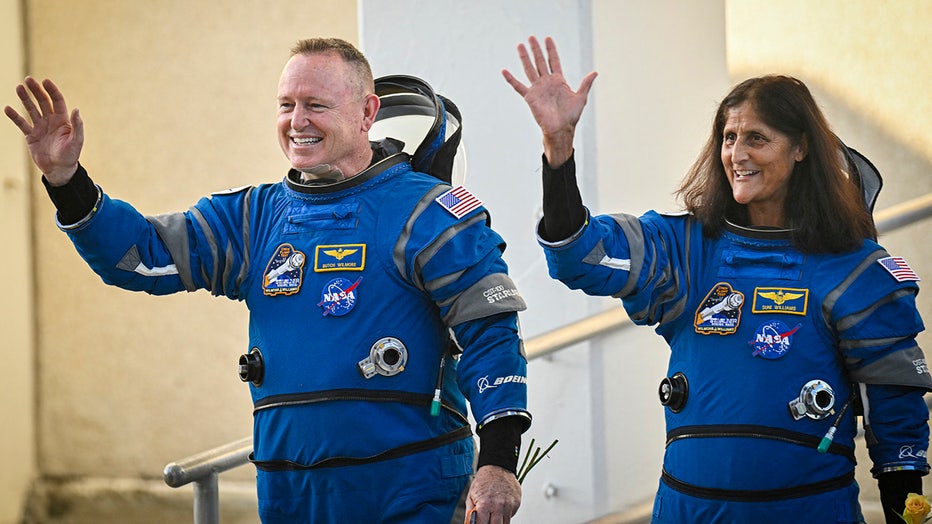
NASA astronauts Butch Wilmore (L) and Suni Williams, wearing Boeing spacesuits, wave as they prepare to depart the Neil A. Armstrong Operations and Checkout Building on June 5, 2024. (Photo by MIGUEL J. RODRIGUEZ CARRILLO/AFP via Getty Images)
Now, with lives on the line, the pressure is even higher. Boeing competitor SpaceX debuted their Crew Dragon capsule in 2020 and has regularly been flying astronauts and even private citizens. Boeing is playing catchup and needs some good publicity as badly as NASA needs a second reliable space taxi. Should anything happen to the SpaceX Crew Dragon, the agency would have to rely on the Russians to get to the station.
"We always look for a backup," NASA Administrator Bill Nelson said before the flight.
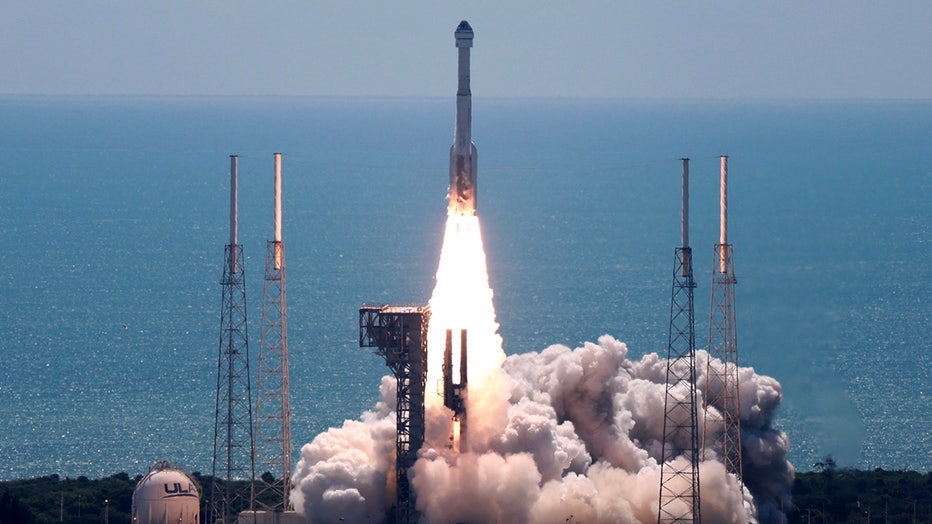
Boeing’s Starliner spacecraft atop a United Launch Alliance Atlas V rocket lifts off from Space Launch Complex 41 during NASA’s Boeing Crew Flight Test on June 05, 2024, in Cape Canaveral, Florida. (Photo by Joe Raedle/Getty Images)
The Starliner is just the sixth American spacecraft to fly astronauts, following the giant leaps made by the Mercury, Gemini, Apollo capsules and lunar lander, the space shuttle, and SpaceX’s Dragon.
First astronaut launch from Launch Complex 41
The first American astronauts all blasted off from Cape Canaveral Air Force Station, but by the Apollo days, that work transitioned down the road to what would become Kennedy Space Center. Since then, all NASA and commercial crew launches have taken place at KSC’s Pad 39A or 39B – until Wednesday.

Starliner astronaut Butch Wilmore's prelaunch speech
Butch Wilmore had some inspirational words just moments before launch as he thanked the team and all Americans for their support. "Let's put some fire in this rocket," he exclaimed.
Boeing’s Starliner lifted off from Space Launch Complex 41 at what is now Cape Canaveral Space Force Station – the first crew launch from the base since Apollo 7 in 1968 and the first time humans have ever left Earth from Complex 41.
That pad has had its share of notable missions, though. NASA’s Viking Mars landers blasted off from there aboard Titan rockets, as did the Voyager probes that have since left the solar system. More recently, several Mars rovers have ridden Atlas rockets from there.
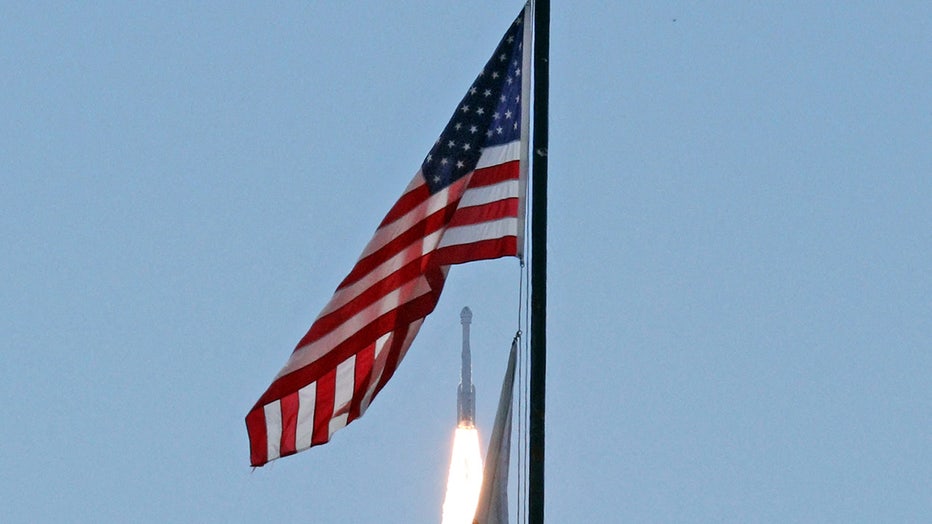
The United Launch Alliance Atlas V rocket with Boeing's CST-100 Starliner spacecraft launches from Space Launch Complex 41 at Cape Canaveral Space Force Station in Florida on June 5, 2024. (Photo by GREGG NEWTON/AFP via Getty Images)
First double spacecraft certification
The goal of this mission is to certify that the Starliner capsule is safe for human spaceflight. Assuming that happens, it will mark the first time that the U.S. has had two crew-rated spacecraft simultaneously.
While there were some plans back in the 1960s to use Gemini capsules on military missions while the Apollo program was underway, none of it ever materialized. So the U.S. has always had just one space vehicle at any given time.
Now, both the SpaceX Crew Dragon and the Boeing Starliner are simultaneously capable of carrying people to space.
First woman on test flight
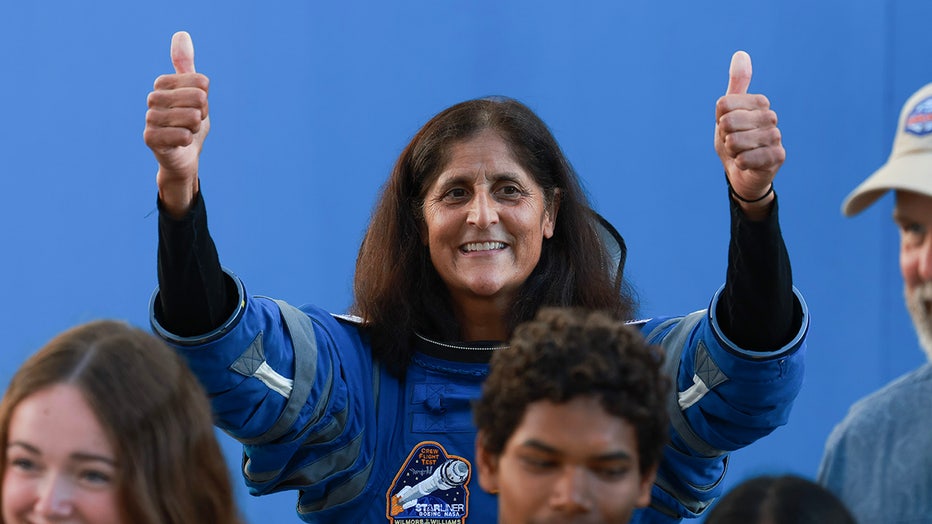
NASA’s Boeing Crew Flight Test Pilot Suni Williams walks out of the Operations and Checkout Building on June 05, 2024 in Cape Canaveral, Florida. (Photo by Joe Raedle/Getty Images)
Suni Williams may be on her third mission, but it's the first time that a woman has flown on an American spacecraft's test flight. Every previous craft's first mission has involved all-male crews:
- Mercury: Alan Shepard
- Gemini: Gus Grissom, John Young
- Apollo: Wally Schirra, Donn Eisele, Walt Cunningham
- Space shuttle: John Young, Bob Crippen
- Crew Dragon: Bob Behnken, Doug Hurley
First U.S. crew spacecraft to parachute down on land
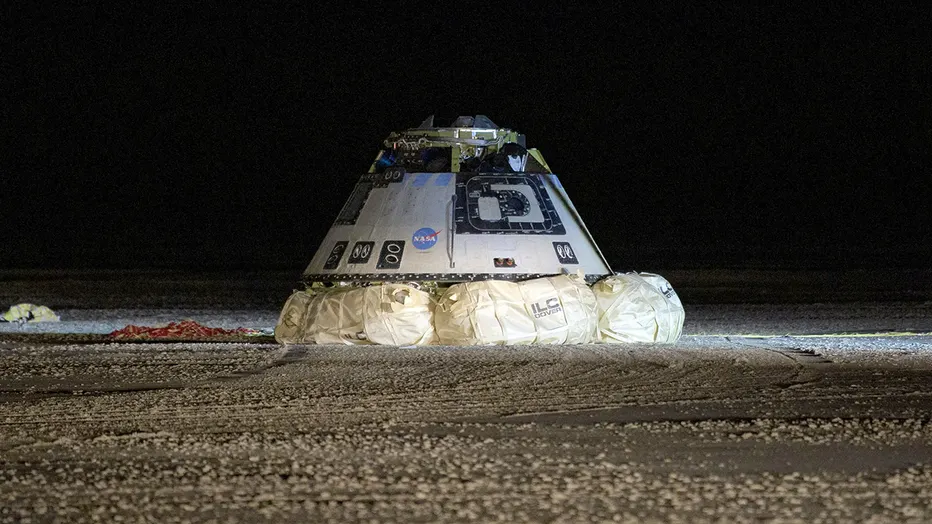
The Boeing CST-100 Starliner spacecraft is seen after it landed in White Sands, New Mexico, Sunday, Dec. 22, 2019. (NASA/Bill Ingalls photo)
The Mercury, Gemini, and Apollo missions all ended with the astronauts slowly drifting back to Earth under parachutes, splashing down in the ocean. With the debut of the space shuttle in 1981, the term "touchdown" replaced "splashdown," but only until the shuttles' 2011 retirement.
SpaceX’s Dragon capsule splashes down at sea like its 1960s predecessors, but Boeing’s Starliner is designed to parachute down to White Sands in New Mexico – the site of one lone shuttle landing. When Wilmore and Williams climb out, it will be the first time that astronauts have taken those first Earthbound steps on American soil.
It won’t be entirely new for this crew, though. Both astronauts have flown to the space station in Russa’s Soyuz capsule, which parachutes down to a hard landing on the chilly steppes of Kazakhstan.

